This is the last of a line of articles discussing a sailing trip from Lisbon in Portugal to Arrecife on Lanzarote. Six new yachts manufactured by Dufour of France had to be delivered to LAVA CHARTER, a charter-company with German roots operating from Arrecife. This fleet of six brand new Grandlarge sailing yachts ranging from 38 to 51 feet has been sailed by dedicated skippers well known to the company who recruited their respective crews amongst friends and committed sailors. I was offered the chance to be part of one of this crews, manning a Dufour Grandlarge 460, the SY MOJITO.
As you may have read in the previous articles, things got rough over the course of our 1.000 mile sailing trip from Lisbon to Lanzarote. I would go as far as this: The last days of sailing had been done under the most stressful circumstances with parts of our crew openly refusing duty, cutting their watch time and forcing the others to stand prolonged watches. I call this mutiny.
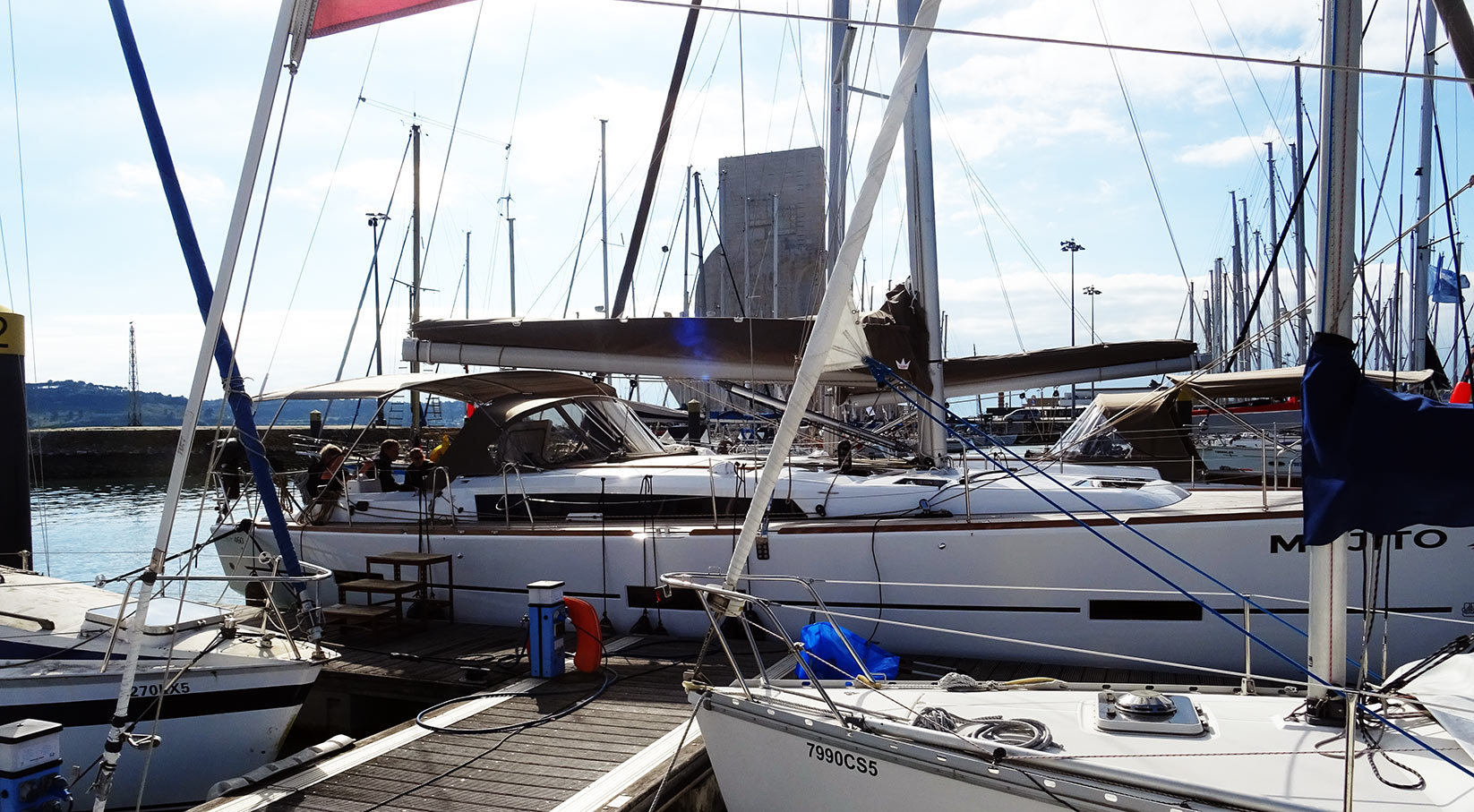
Where´s the cause for all this? Who is responsible? Well, first of all, a ship is a “social reactor”, as the saying goes. And sailing a boat can bring on the most precious of human character as well as show the darkest of our facets, encouraging distrust, disappointment and flat out rage. Who is responsible? First and always the skipper of course! Here´s what I´ve drawn from the incidents aboard SY MOJITO and what our skipper (whom I would call a friend now and have the deepest respect for) could have done in order to prevent our crew from deterioration and breaking apart.
Lesson 1: A thorough Pre-Trip Crew Briefing
You know the song by Depeche Mode “People are People”? That´s an ultimate truth: When people gather to form a team on board, no matter what they say and how they may appear to you, one thing is certain: They will bring along with their duffel bags all of their personalities, individual characters and problems as well as their strengths, individuals talents and capabilities. A wise skipper would try to get to know these strengths as well as the downsides of each of his crew mates in order to be prepared – and to prepare the crew itself. How to do that? Sit together in the saloon one day before casting off in a leisure atmosphere and let them talk. I repeat: Let THEM talk. Ask everyone to introduce him- or herself: What are your experiences with sailing? Do you have any? What are the expectations? What do they wish to learn, to see? Do they have any preferences (“I love cooking!”) or do they lack anything? (“I have fear of the dark hours.”)
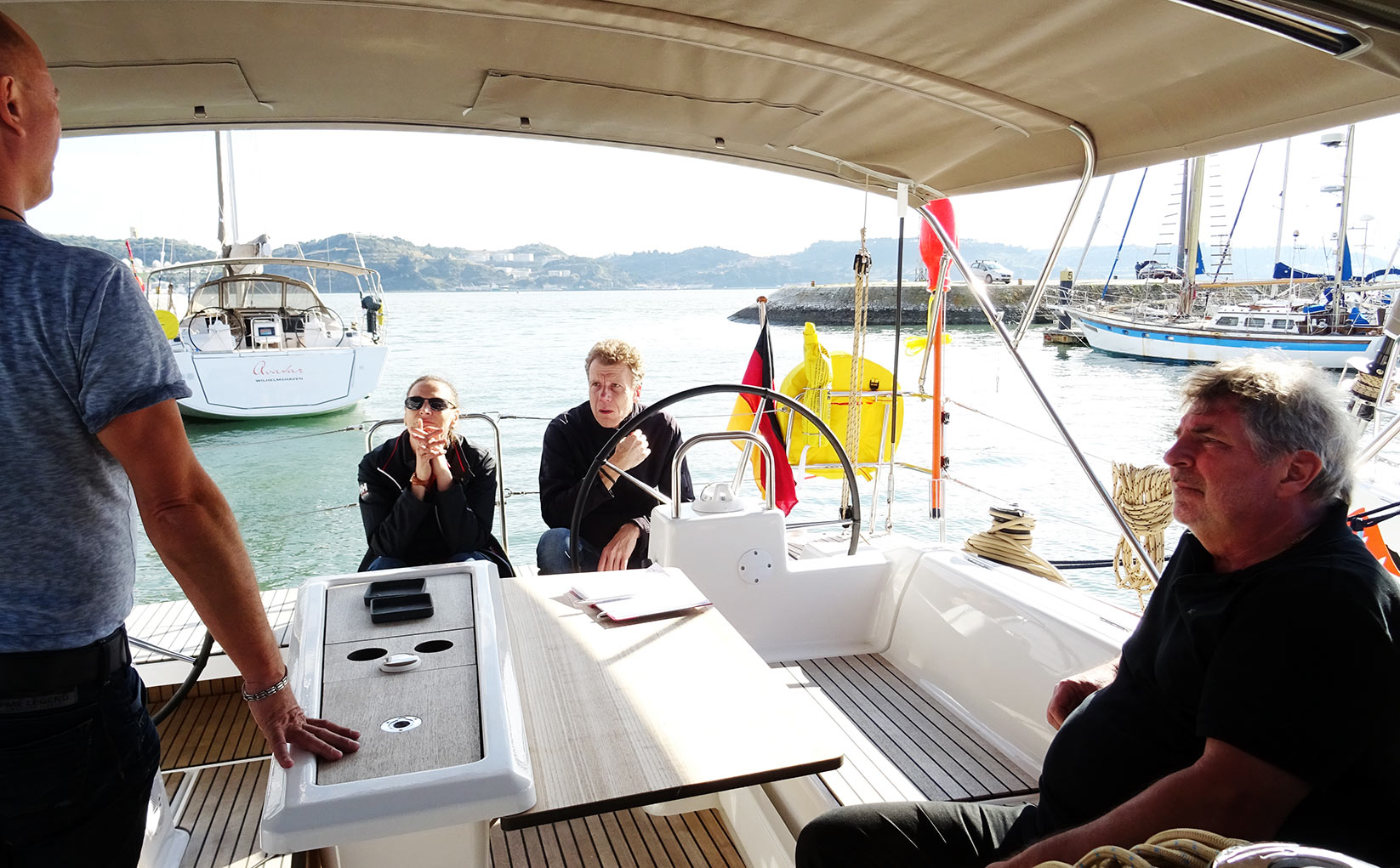
A thorough pre-trip briefing will enable the skipper to get to know the strengths and the weaknesses of the crew, will also draw a picture of the characters of the crew members and will help him to address the individual needs, expectations and moods of the people. On the other hand, after they have talked, the skipper will articulate his own expectations of the trip. He will make clear what he is expecting from each crew member, how he will run the ship, what a daily routine will be like and also basic safety measures en-route. A wise skipper will also use this occasion to make sure that everyone sees and accepts his competence: By showing that he has a plan, he creates trust in his abilities and it will be easier in the process to have the crew following his or her orders. Don´t miss this opportunity to get to know your crew – and for your crew to get to know you and your style of running the ship.
Lesson 2: Safety, Safety, Safety!
As skipper, you are always responsible for everything that happens aboard your boat. That´s clear. Let´s be straight with this one: If somebody gets hurt or even dies under your command, that will be the worst thing to happen. To prevent everyone from this awful experience, be clear about the safety measures aboard right from the beginning: Have a thorough safety briefing. This will take at least one hour. Wearing a live jacket upon command “ready to casting off” up until the boat is safely tied to the pier in the next harbour should be customary. Show them how to wear a life jacket properly (with crotch strap attached!) and be very clear with what could happen if they don´t. Simple: Death. Rule one aboard every ship should be “nobody goes overboard!” and you as skipper should be very, very straight on this one. Be a role model and don´t take off the life jacket, don´t be lazy. People are still dying because they had been lazy.
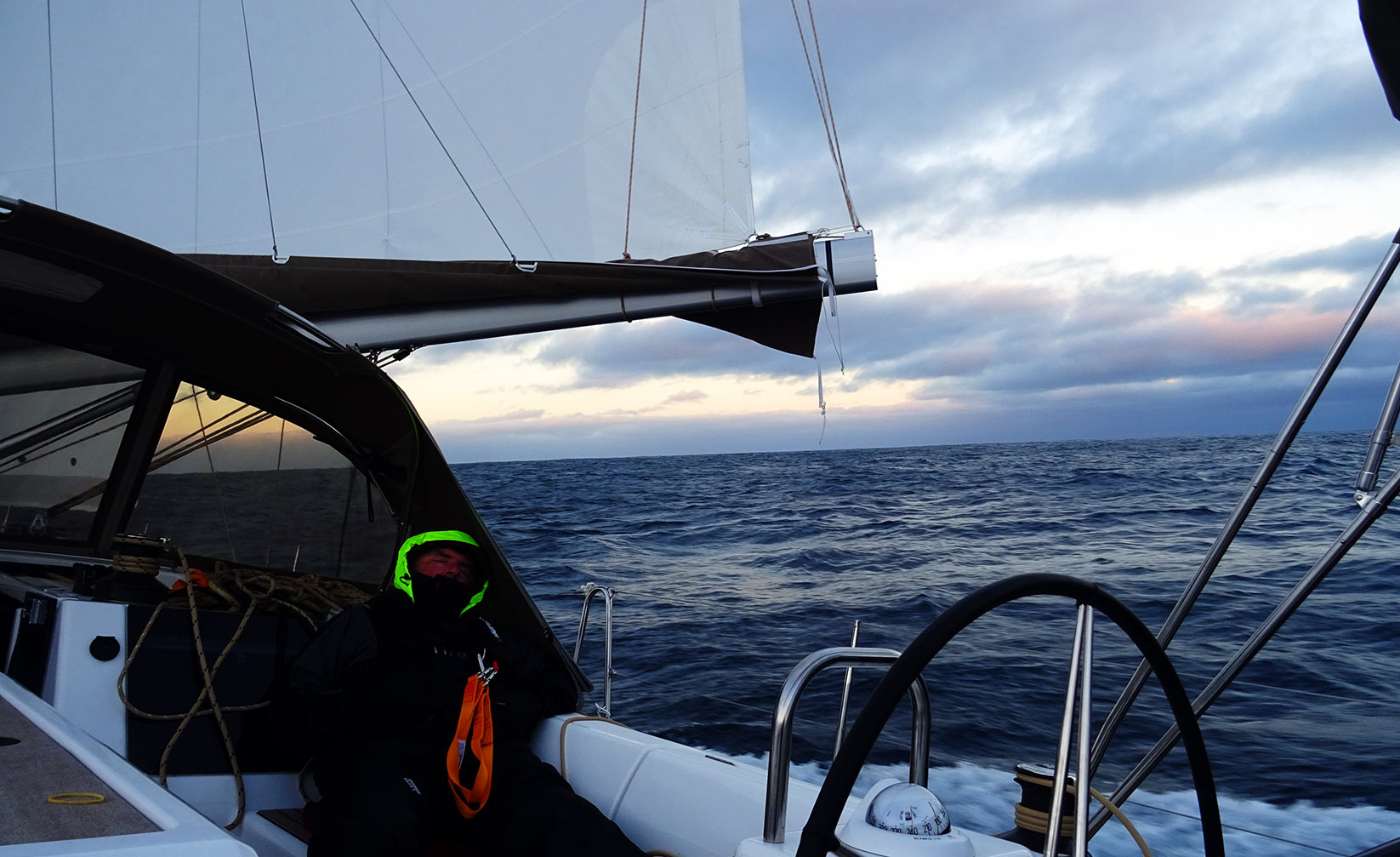
In addition to wearing the life jacket, when sun starts to go down, all through the night up until the sun is up again securing oneself with a life-belt should also be of no question. People do fall overboard, especially during the night time (stumble over a rope or something) and a MOB during the night is in most cases a death sentence. Be clear on this one too! Show them the safety concept of the very yacht you are sailing on: Fire extinguishers, leakage prevention, pumps and stuff, electrical things, VHF with Digital Selective Calling, Distress- and MOB-keys and how to behave in a case of distress. If you are straightforward and clear in laying out the safety rules on board, you will have far less stress when things get rough outside because you can be sure the crew behaves properly.
Lesson 3: The Watch Schedule
Let´s be clear about that: Sailing is indeed a stressful thing to do. Especially to stand a watch can be an exhausting experience for newbies on the boat. This is something that has to be brought to the guest´s attention right from the beginning. Depending on the duration of the trip, the area you are sailing in, the weather, the boat and of course the capabilities of the crew members, creating a schedule that will both be sufficient for the operation of the boat as well as fit to each of the crew member´s individual potentials is an art. As far as I am concerned, every skipper tends to have his or her own favourite kind of rotation. There are many systems and I guess you have to get yourself familiar with them.
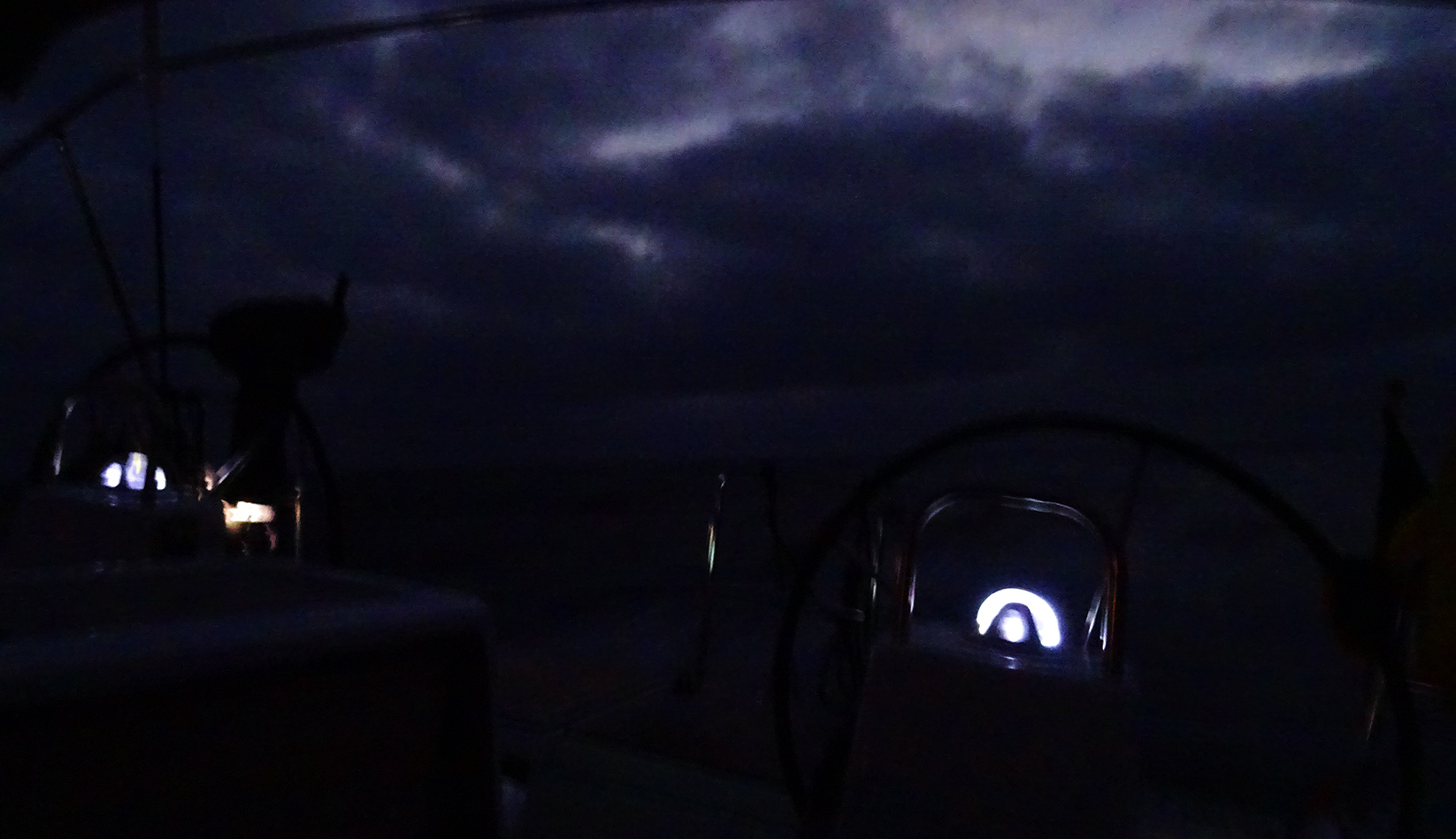
But do not make the same mistake as our skipper did during the Atlantic Ocean trip: As he decided, he was only arranging a schedule for watches during night time from 8 p.m. till 8 a.m. the next morning. He assumed, that during daylight “normally people volunteer to stand a watch”. Which was right for the beginning of the trip as the crew is enthusiastic about sailing – the further we went, the more exhausting a watch got, the less people volunteered. So, in any case, no matter which system you decide to go for – arrange a full 24 hours-schedule for the crew. Try to rotate the times so that everybody will have to stand watch during the “dog´s hours” from 0 to 4 a.m. (the most hated watch). Also, you may try to rotate the teams (try to have at least two people on guard, nobody should stand a watch alone) if enough crew members are available. 4 hours is a very long and tedious time frame, but on the other hand it allows the people in off-duty to really get a long relaxing sleep. 2 hours is perfect for short trips, but insufficient for the long haul: Try to find your own recipe here, as long as you keep up a 24 hours-watch-system.
Lesson 4: At least two Meals a Day
A ship´s cook is the second most important man on a boat, that´s for sure. We need nutrition, we need to drink, we need social contacts. As a skipper, you are responsible as well for the crew not just to replenish their stores but to engage each other in socializing aspects, which is a very important thing on the long haul trip. If you fail to arrange this, chaos will break out, believe me. It is my believe that at least two times in 24 hours the crew must gather around the large dining table in the saloon to have a meal together. It´s here where the latest facts can be traded, people can exchange experiences and thoughts and talk to each other outside of the watch system.
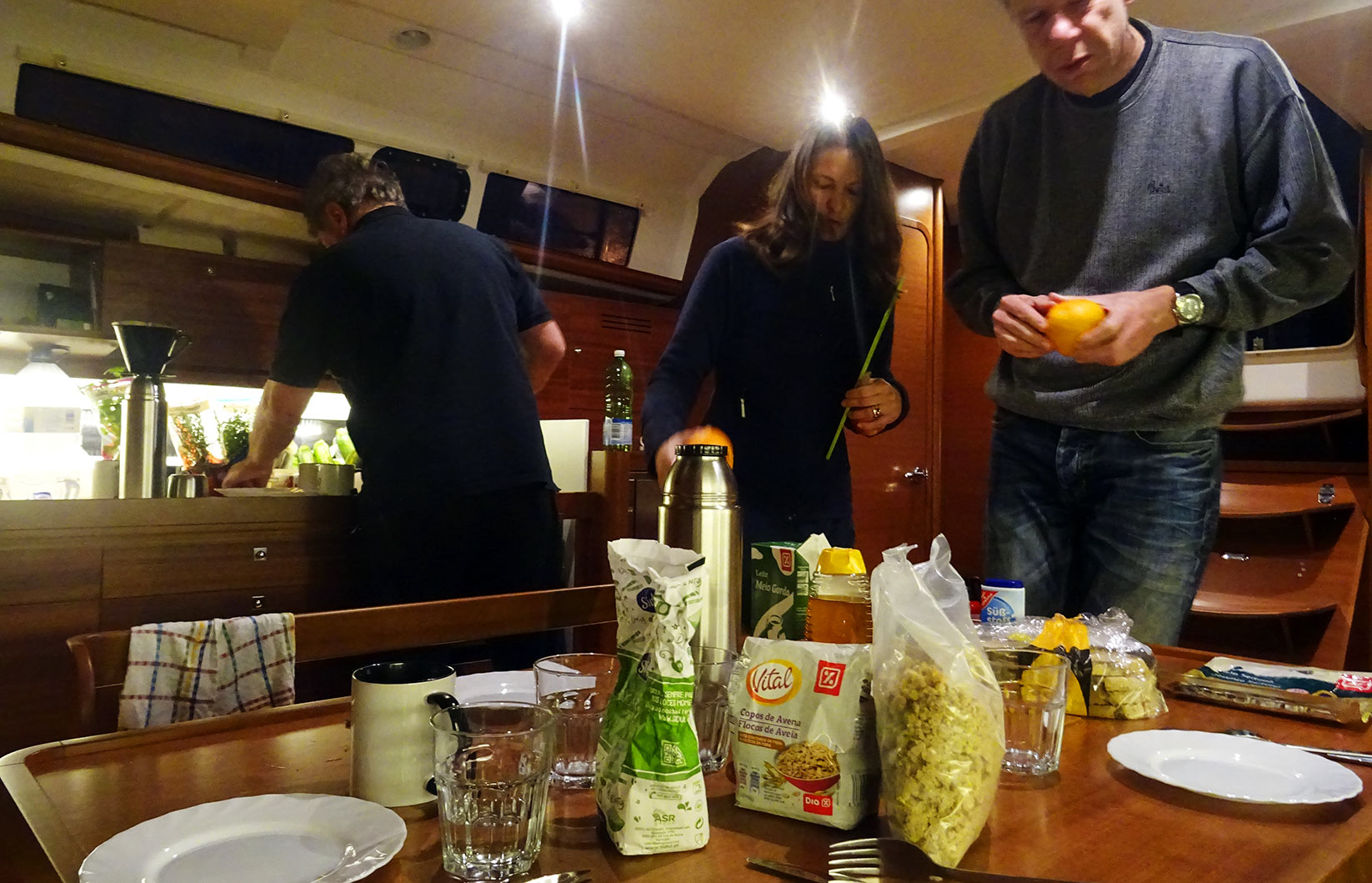
Besides, arranging at least two meals a day means that two times a day there will be an appointed crew member (or more) who is responsible for preparing the meal in the galley. It´s always a highlight seeing others trying their best to surprise their fellow crew members with new recipes, local food of the very destinations the yacht has or is to be visited. In this mode, you will uphold crew´s spirits, provide for an occasion where the crew can talk and – of course – make sure that the galley and saloon are cleaned thoroughly after each meal. By the way: Passage planning includes a clever provisioning system and stock management (which is a topic for a separate article of course).
Lesson 5: The Carrot and the Stick
Well, that´s a very sensitive thing to talk about and of course, ask 10 skippers and you´ll get 10 different opinions about that. This is mine. In any case, the skipper must make sure that his competence is to be trusted by the whole crew, accepted by the whole crew and that his instructions are implemented in full manner. It´s a dangerous thing for any skipper to let the crew on a “loose leash” to much on the one hand. On the other hand it can kill all of the crew´s spirit, fun and their will to operate the ship if the leash is too tight. The skippers I would define as role model for myself had all found the perfect balance between a strict and determined style of commanding their vessels and just the right amount of self-determination for the crew members to act in a certain area of autonomy. Even if this autonomy is just a perceived one. If you uphold order on your boat right from the beginning, act as a skipper and let no doubt that you´re not just in control and be responsible for the yacht, but most of all that you are in control of every aspect of the yacht, people will accept you as captain and follow your instructions.
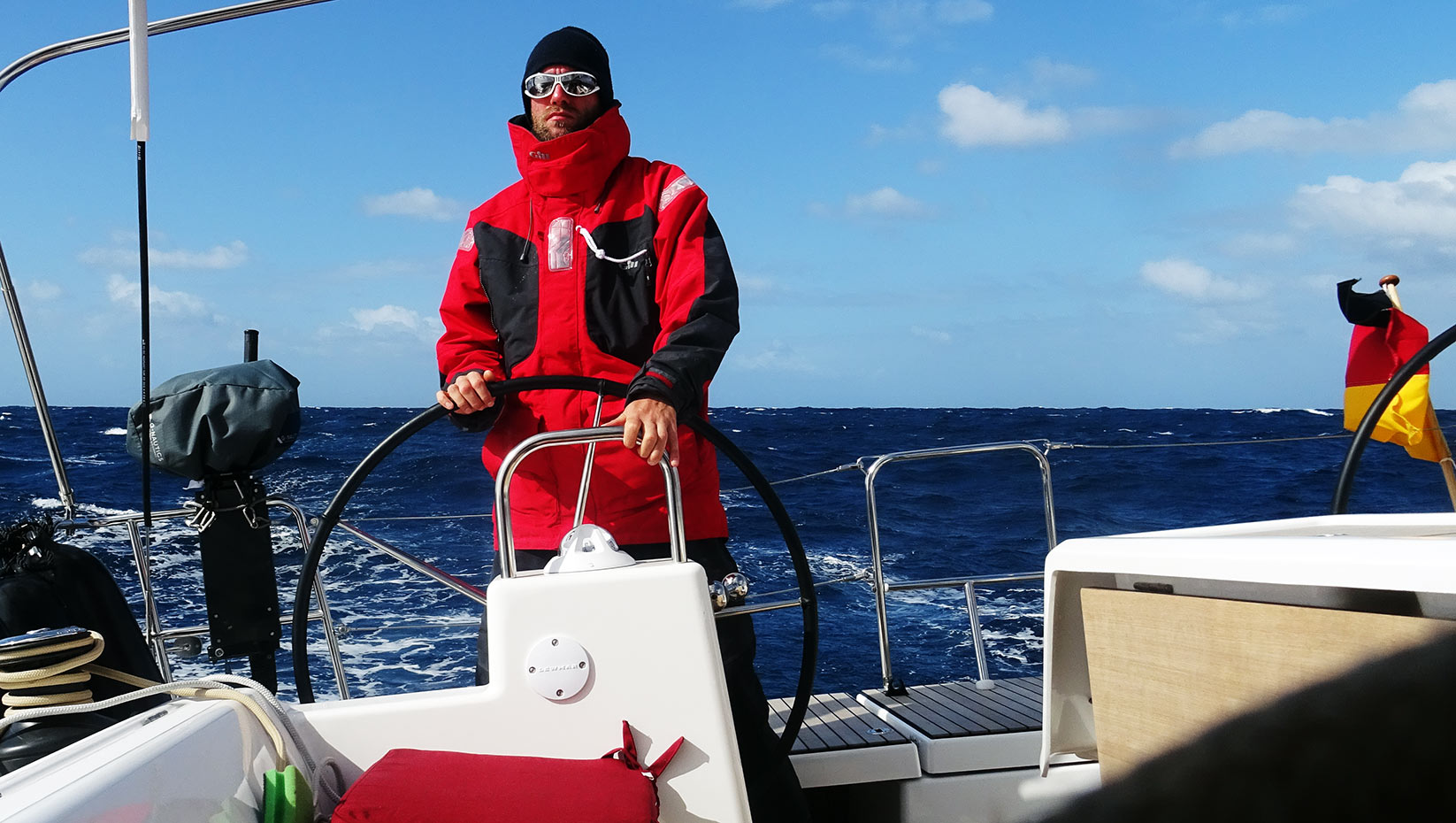
For me, that means if I go on a charter boat, I arrive 3-4 hours earlier than the crew to get myself familiar with the boat, lines, rigging, engine, machinery, equipment, where-is-what et cetera. Knowing where to look to find things, knowing your sailing area in advance, knowing weather forecasts, knowing local conditions of harbours – virtually all aspects of the trip – will create instant trust in your decisions. Finding the right tone of commandeering the crew, advising how to apply certain things, explaining why you do things the way you do them, encouraging people to try out certain things, to experience how to steer, how to sail, how to trim and so on, will create moments of joy – and deepen the relationship between you as their superior and them as the crew. You ought to find the right balance between the “Good ol´ Captain” who is throwing around a joke from time to time but always kind of knows what to do and the quick acting, determined fast thinking and serious seafarer when the situation demands it. Your tone should change and let no doubt about the situation. You shouldn´t really punish crew members who disobey (mostly that´s because their risk-threshold is lower than it should be, therefore they do things they shouldn´t) but if you raise your voice and advise people to do certain things, it must be obeyed. I would say, that´s the hardest thing as skipper.
Lesson 6: Act in any case when things get rough
A skipper, that´s my firm belief, should at least let no doubt that he is in control. It´s not that he must know everything completely, but he should have a plan, should have means to determine an answer to open questions and he should be a leader in every aspect. That´s beginning with planning the voyage (sailing area, weather, harbors, provisions et cetera), sailing the yacht, leading the crew and reacting to ever changing situations. Nevertheless, things can get rough, as I have personally experienced. When crew mates begin to argue with each other, when crew mates dislike the food prepared by others, complain about certain crew mates´ behaviour, complain about the cleansing of the WC – there are thousands potential conflicts on a yacht. As a fellow crew mate once described it: “A ship is a social reactor”. A skipper must always have an open eye on the health of the social atmosphere aboard.
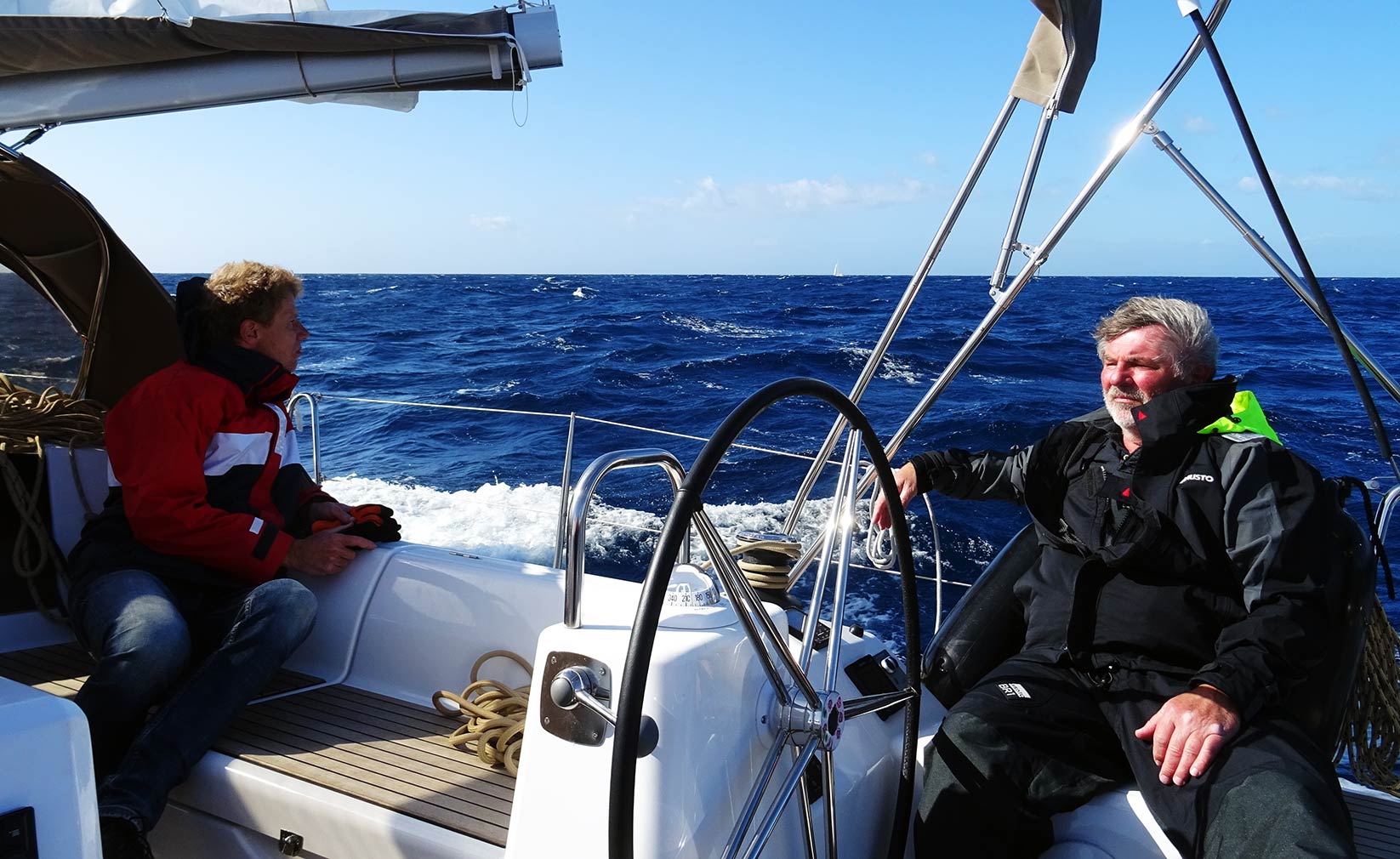
When things start to tilt, he must react. Talking is the only way of solving a problem, as nobody can get off the boat, run away or – worst, as it happened on board our boat on the Atlantic Ocean – refusing duty, forcing others to take on the shifts of somebody. Get people together who have a problem with each other (or with you), speak openly and frankly, try to pinpoint the problem, try to mediate and discuss matters. Find a solution – you have to. Try to make peace, at least a compromise. If this fails too, give orders to the crew how to behave because the ship must under all circumstances be operated no matter if people dislike each other. Most of the conflicts can be solved easily because they derive from insignificant small details. If you cannot solve the problem, in any case, don´t let any doubt about the safe operation of the boat and your position on it. Worst case: Release person(s) of their duties and separate them from the crew as to uphold the safe sailing up until the next harbour. Then an open discussion might solve the problem, sometimes people need solitude, some distance and solid ground to gather themselves. In any case: Do something. If you are reluctant or ignorant, crew´s spirit will deteriorate and that´s a dangerous thing to happen, especially offshore.
Easy said, hard done: Being Skipper first Time
These are the sic things I learned from 1.000 miles aboard a 46 feet sailing yacht going over the Atlantic Ocean. We started as a nice crew with a million jokes a day – and we arrived split into two groups, not talking to each other, being lucky and relieved to leave the boat and to not having to see each other again for the rest of our lives. Spirits were down up to the lowest point when parts of the crew openly refused duty, relieved themselves off watch early, didn´t participated in onboard life, didn´t prepared meals for the others, helped cleaning the yacht and even refused to help tying up the boat at her destination harbor and thus put the ship´s safety in jeopardy. I swore that things like this must not happen under my own command.
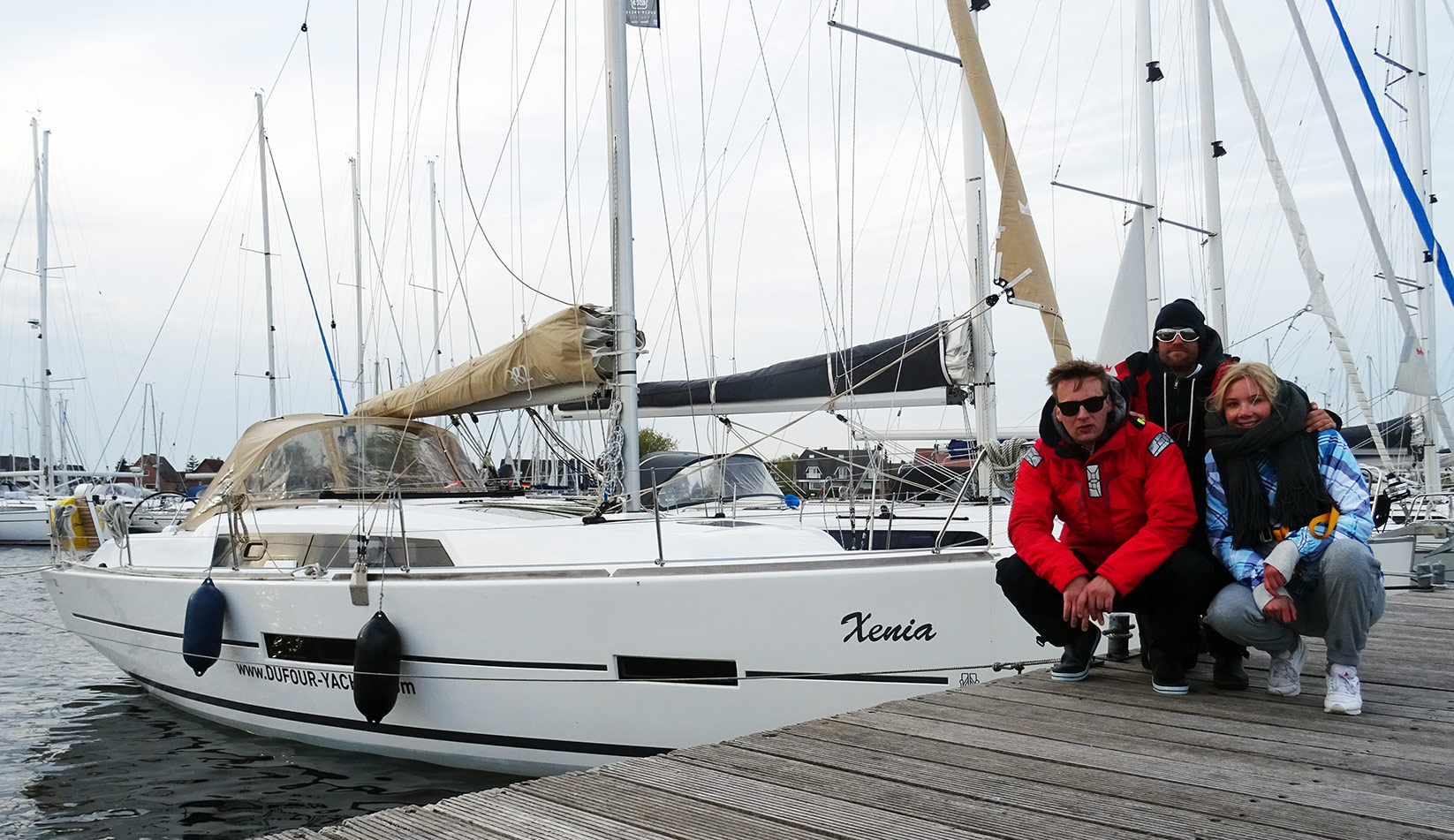
I´ve got to experience first-hand what it means to be in charge, to be responsible for a boat, a crew and what both are doing among traffic and environment. This is what you are going to be reading in one of the upcoming articles because last week I went on my first ever sailing trip as skipper. 300 miles on the Baltic Sea behind the steering wheels of a Dufour 382. How I performed, what I managed to achieved and what I might not be able to do yet and how it felt. I do not wish to be spoiling you on this one, but I can say now that among my 6 lessons learned from the Atlantic sailing trip there is one point I totally missed – and that this point might be the most important. The thing about this is: You are only to experience it when you actually are acting as skipper indeed, crew mates will never ever get a glimpse of this important fact. Stay tuned.
All previous and the upcoming articles on this sailing trip from Lisbon to Lanzarote can be browsed by clicking on this hashtag #dufourcanaries
Special Thanks to LAVA CHARTER for the chance to sail one of their boats. For information and offers on charter trips on the Canaries on these Dufour Yachts please visit www.lavacharter.com A unique and special discount for my readers of 1.5% on all LAVA CHARTER bookings may be acquired by stating web code NOFRILLSSAILING along with your booking.
